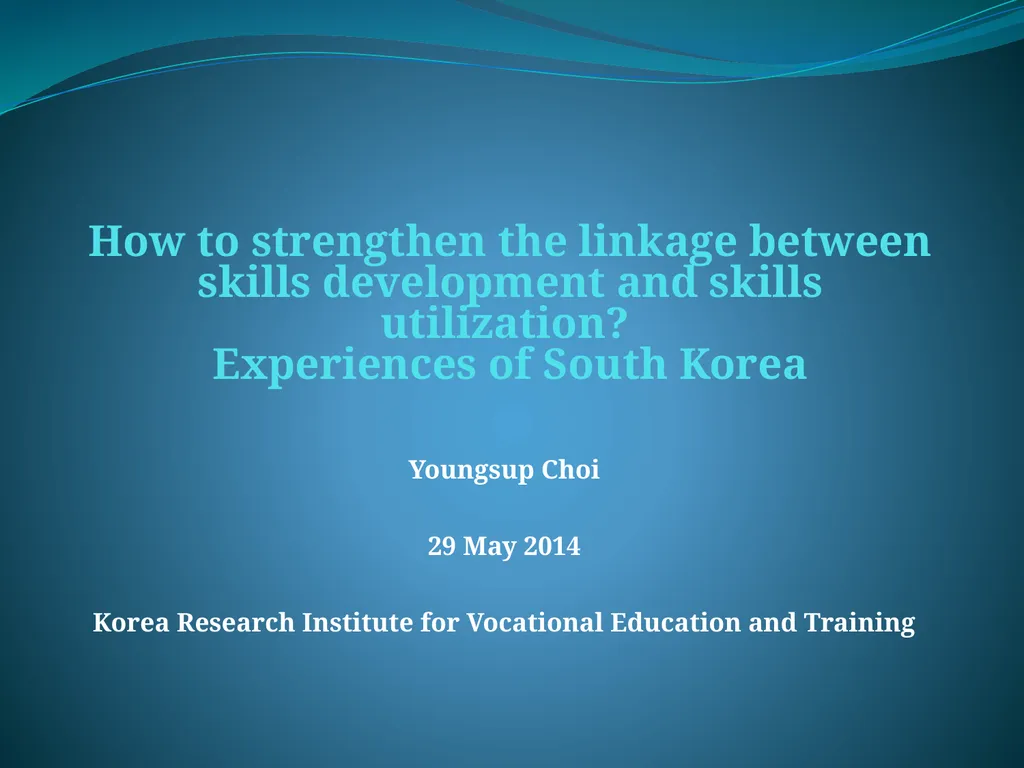
Author : marina-yarberry | Published Date : 2025-06-23
Description: How to strengthen the linkage between skills development and skills utilization? Experiences of South Korea Youngsup Choi 29 May 2014 Korea Research Institute for Vocational Education and Training Quick look at Koreas youth labor marketDownload Presentation The PPT/PDF document "" is the property of its rightful owner. Permission is granted to download and print the materials on this website for personal, non-commercial use only, and to display it on your personal computer provided you do not modify the materials and that you retain all copyright notices contained in the materials. By downloading content from our website, you accept the terms of this agreement.
Here is the link to download the presentation.
"How to strengthen the linkage between skills"The content belongs to its owner. You may download and print it for personal use, without modification, and keep all copyright notices. By downloading, you agree to these terms.













